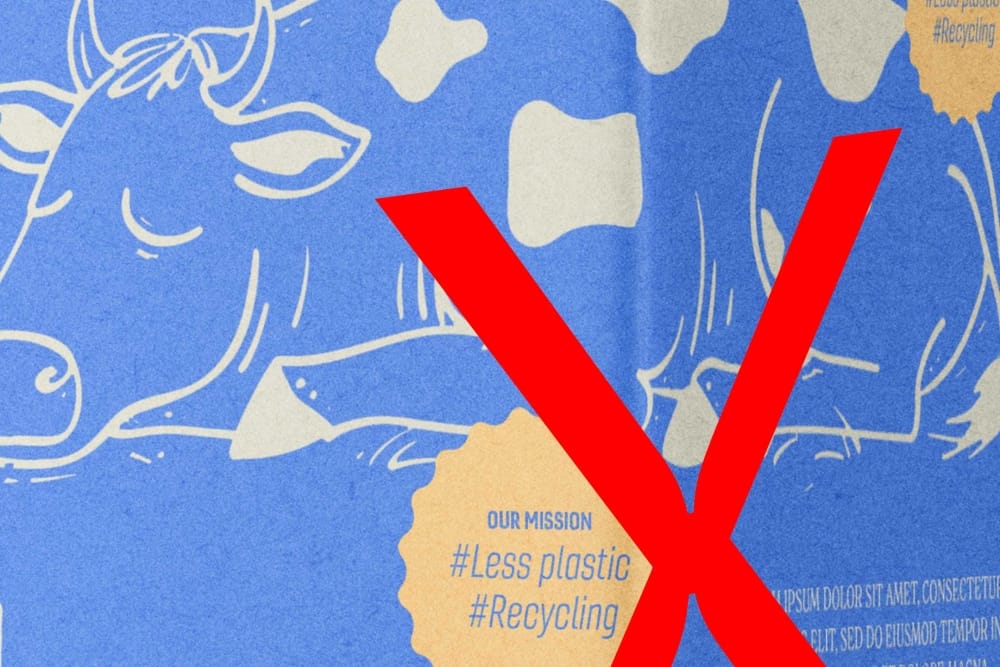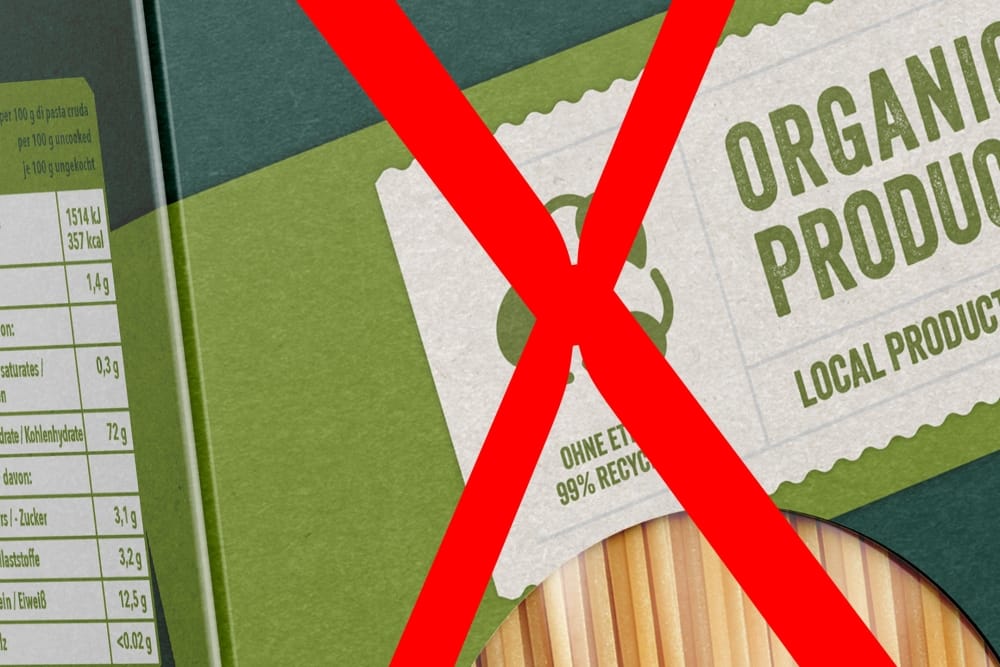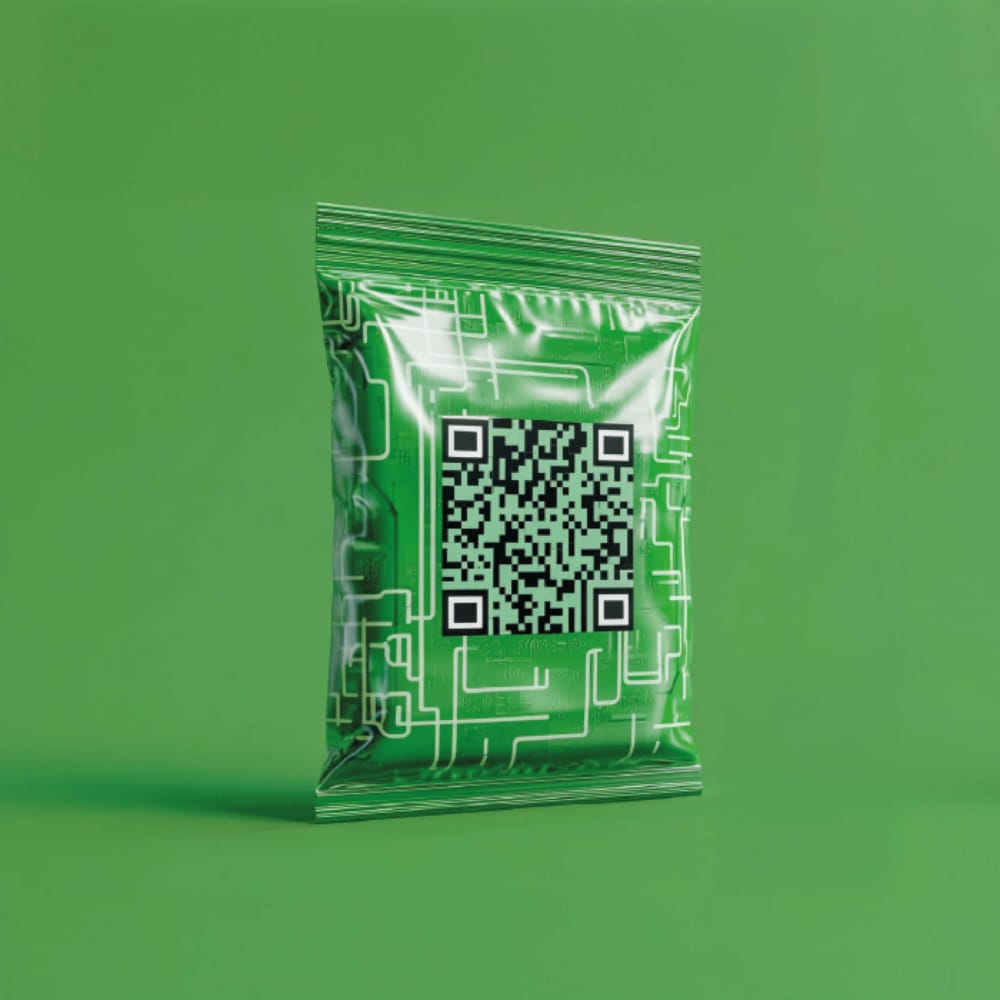EMPCO READY PACKAGING
We will update your sustainability communication at product level by September 2026. Find out more now and request a free initial consultation.
The challenge for all brand owners – changeover by September 2026.
The EmpCo Directive(white paper) adopted in January 2024 is part of the EU strategy against greenwashing and requires brands to communicate more clearly and transparently with consumers. In future, it must be possible to explain and substantiate environmental claims such as “green” or “environmentally friendly”. It must also be possible to argue all representations that could indicate a special environmental performance. The EmpCo regulations are binding from September 2026.
Whether brand or product name, claims, marketing texts, graphic representations or colors – almost all elements of packaging can be affected by the EmpCo regulation. This makes professional adaptation that minimizes risks all the more important.

How are you supposed to find your way through this regulatory jungle?
Together with our partner info.link we make it easy for food distributors – we check the existing artwork for compliance and adapt it to make it future-proof. A QR code and customizable info link pages are used to display and easily adapt the necessary information. This means that all regulatory requirements can be covered in a bundled manner.
Get started and pilot now: Request a non-binding single-SKU analysis incl. artwork customization (360°/packaging)!
Understanding the Empowering Consumers Directive (EmpCo)
The European Union has significantly tightened its measures against greenwashing with the Empowering Consumers Directive (EmpCo or ECGT Directive), officially known as Directive (EU) 2024/825, which amends both the existing Unfair Commercial Practices Directive (UCPD or Directive 2005/29/EC) and the Consumer Rights Directive (CRD) and is a key part of the EU’s wider “European Green Deal” program.
What is the central goal?
The central aim of EmpCo is to protect consumers from misleading marketing practices in the area of sustainability and to enable them to make transparent, informed purchasing decisions. The EU wants to counteract unfair business practices that make access to truly sustainable products more difficult – for example with regard to premature obsolescence, misleading ecological and social advertising claims or questionable sustainability labels – by setting specific guidelines. The initiative contributes to the EU’s goal of becoming climate-neutral by 2050 and promoting a more circular economy.
When does the directive apply?
The EmpCo Directive was adopted by the EU Parliament on January 17, 2024 and approved by the EU Council on February 20, 2024. It was published on March 6, 2024 and officially entered into force on March 26, 2024.
This is the timetable for companies:
- March 27, 2026: By this date, all EU member states must transpose the requirements into national law.
- September 27, 2026: The new regulations will be binding from this date.
It is important to note that even before EmpCo has been fully implemented, case law is beginning to take its content into account. Misleading environmental claims in advertising have long been contestable under competition law. A ruling by the Federal Court of Justice on June 27, 2024 is already considered an example of the implementation of central EmpCo requirements and shows The requirements for credible environmental advertising are increasing noticeably.
Typical optimization areas for food packaging in Germany and Europe.
General environmental statements
Statements such as “environmentally friendly”, “green”, “climate-friendly” or “nature-friendly” that are not explained in more detail on the packaging itself or are part of an official seal are no longer permitted.
Misleading overall claim
Environmental claims that refer only to a specific aspect of the product but appear to refer to the entire product or the entire company are prohibited.
Misleading product comparisons
Environmental benefits of products may not be compared if there is no information on the comparison method used. This applies to statements such as “Less plastic than…”
Self-evident statements
Advertising must not be based on legal requirements. Particular care must be taken here not to advertise with statements that become law under the PPWR, such as recyclability or recycled content.
“Own label” without “certification system”
It is prohibited to affix a sustainability seal that is not recognized by the state or based on an official certification system. This also applies, for example, to self-designed, unofficial “vegan” or “organic” labels.
CO2-neutral claims only on the basis of offsetting
Claims of CO2 neutrality based solely on offsetting are misleading; real CO2 savings in the life cycle are necessary.



